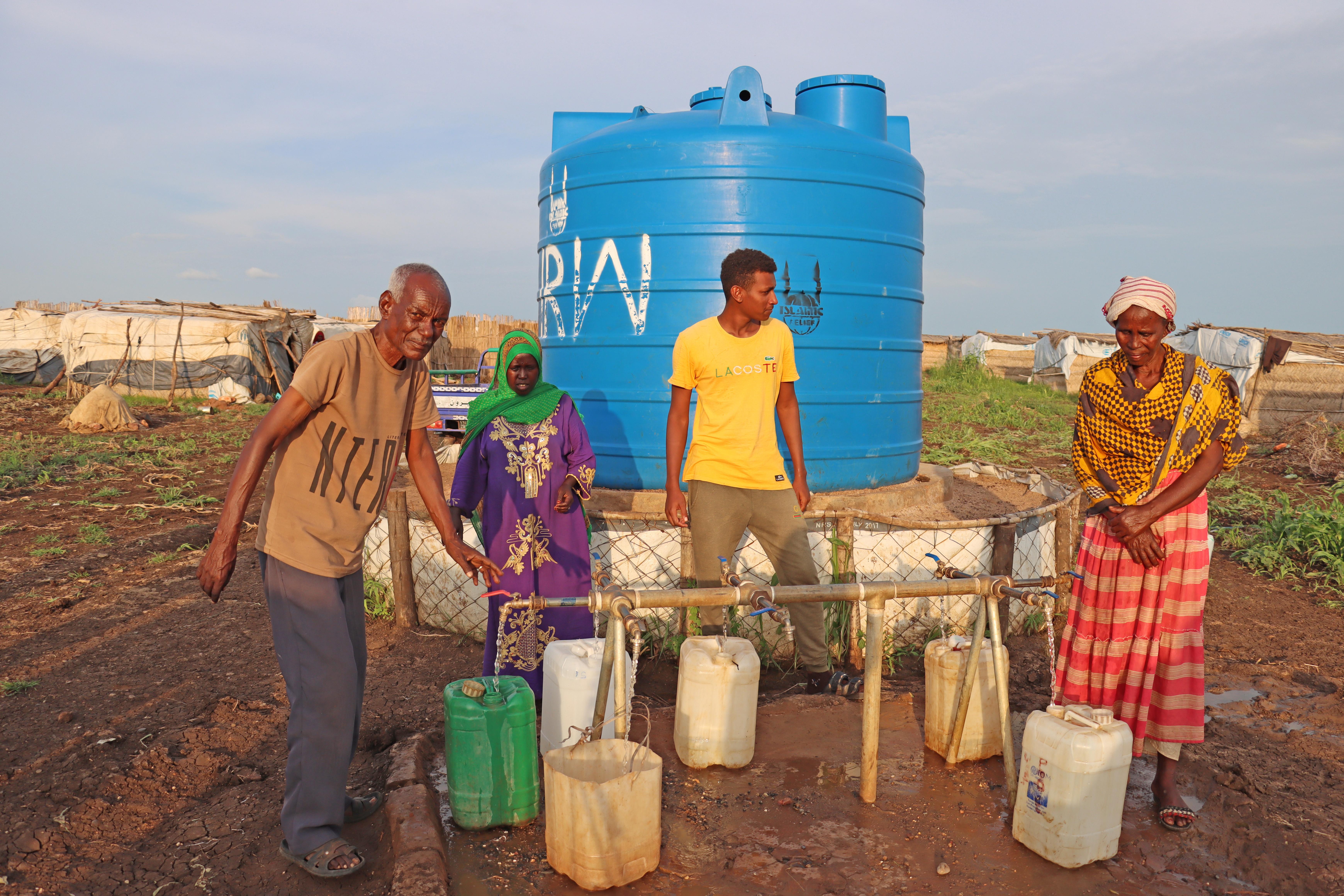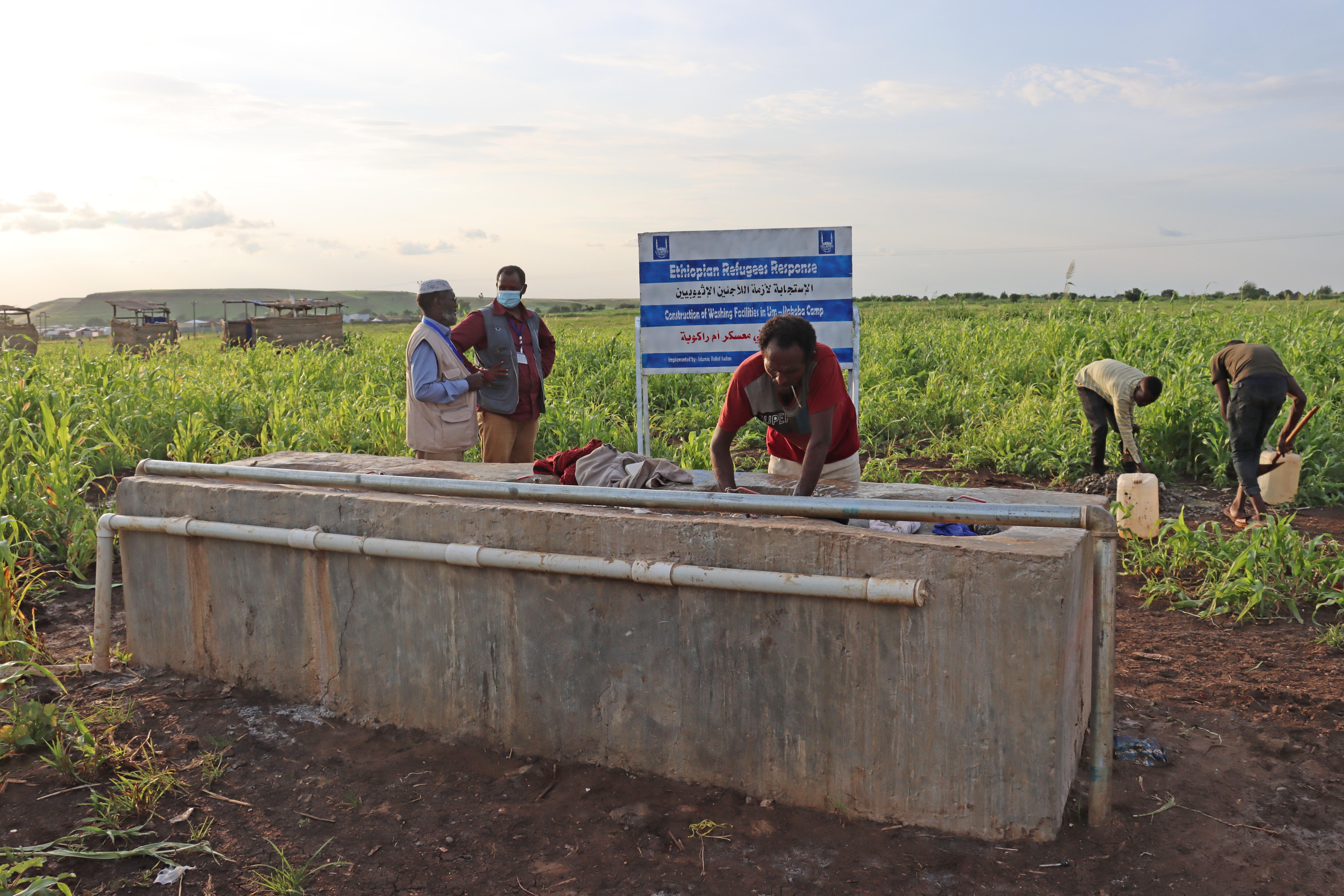Introduction to Sudan
As Africa’s third largest country by area, Sudan hosts a population of 46.7 million people. Over 97% of Sudan’s population is Muslim while the minority practice Christianity and other religious affiliations. Sudan has the world’s largest collection of pyramids with over 200 recorded. Other popular sites to visit include Lake Nasser, Dinder National Park, and the Republican Palace Museum.
Sudan’s scenery and rich cultures serve as a backdrop to ongoing conflict, sociopolitical instability, natural disasters, and economic upheaval. These conditions have pushed 9.3 million people into requiring urgent humanitarian assistance. The Sudanese population faces food insecurity, malnutrition, and lack of access to clean water and health services.
Medical shortages have also been reported nationwide as communities grapple with contaminated water supplies and waterborne and vector-borne diseases. As well, Sudan is a transit and destination country for refugees, asylum seekers, and migrants. It currently hosts around 1.1 million refugees whose immediate needs are protection, nutrition, shelter, and health assistance.
Why do the people of Sudan need your support?
For people across Sudan, life is incredibly challenging:
-
12 million people do not have access to safe drinking water and are at risk of catching diseases from contaminated water sources (UNICEF, 2020)
-
2 million children in Sudan suffer from acute malnutrition, 50% of which is associated with repeated diarrhoea or worm infections (UNICEF Sudan)
-
3.6 million people are displaced, of which 1.1 million are refugees from neighbouring regions and 2.5 million are IDPs (UNHCR, 2020)
Islamic Relief in Sudan
Sudan is the first country that Islamic Relief worked in, responding to the famine in 1984. Since then, Islamic Relief established a main office in Khartoum and expanded its operational presence to Blue Nile, Central Darfur, North and West Kordofan, Gedarif State, and Khartoum. To date, Islamic Relief Canada has helped over 156,011 individuals in Sudan through nutritional, food, education, livelihood, and WASH projects.
Among ongoing projects, Islamic Relief Canada is on the ground to Increase Access to Integrated Services of Education, Health, Food Security and Livelihood in Damazine and Geissan. This project is rehabilitating classrooms, constructing latrines and water points, training teachers, upgrading health centres to provide comprehensive health services, and supporting smallholder farmers with training on climate-resilient agricultural techniques and animal upkeep.
The Ethiopian Refugee Protection Response in Gadaref supports refugees in the Um Rakuba and Tunaydbah camps by providing training on sexual and gender based violence prevention and mitigation, establishing community-based protection mechanisms and safe spaces, conducting child reunification and family tracking, as well as providing referrals for women and children to access services in the camps.
This project aims to improve safe and dignified protection services and increase gender-responsive health services within these refugee camps. We are providing unconditional cash transfers and agricultural inputs, conducting training on sexual and reproductive health and rights for health professionals, providing maternal health services, conductin community healthcare service mapping including referral pathways, and providing dignity kits to women and girls.
Your donations in action
Islamic Relief Canada has reached 9,068 individuals through the Food Security and Livelihood Resilience Support for Returnees and Vulnerable Host communities project. The primary goal of this project was to reduce internally displaced persons, returnees and host communities’ socio-economic vulnerability and long-term reliance on humanitarian assistance.
One way this goal was achieved was through establishing women-led group savings and loans associations. 2 group savings and loans associations, comprising 40 women, were granted $40,474 CAD to expand trade, restock livestock, and invest funds into income generating activities.
The group savings and loans associations acted as a source of economic empowerment to vulnerable women while ensuring their participation in resource utilization and mobilization. As Mrs. Thuria Ishag Hassan, a participant of one of the group savings and loans associations, states,
“We are very thankful to Islamic Relief because our lives became better and I can now generate income to support my family.”
Follow your donation

